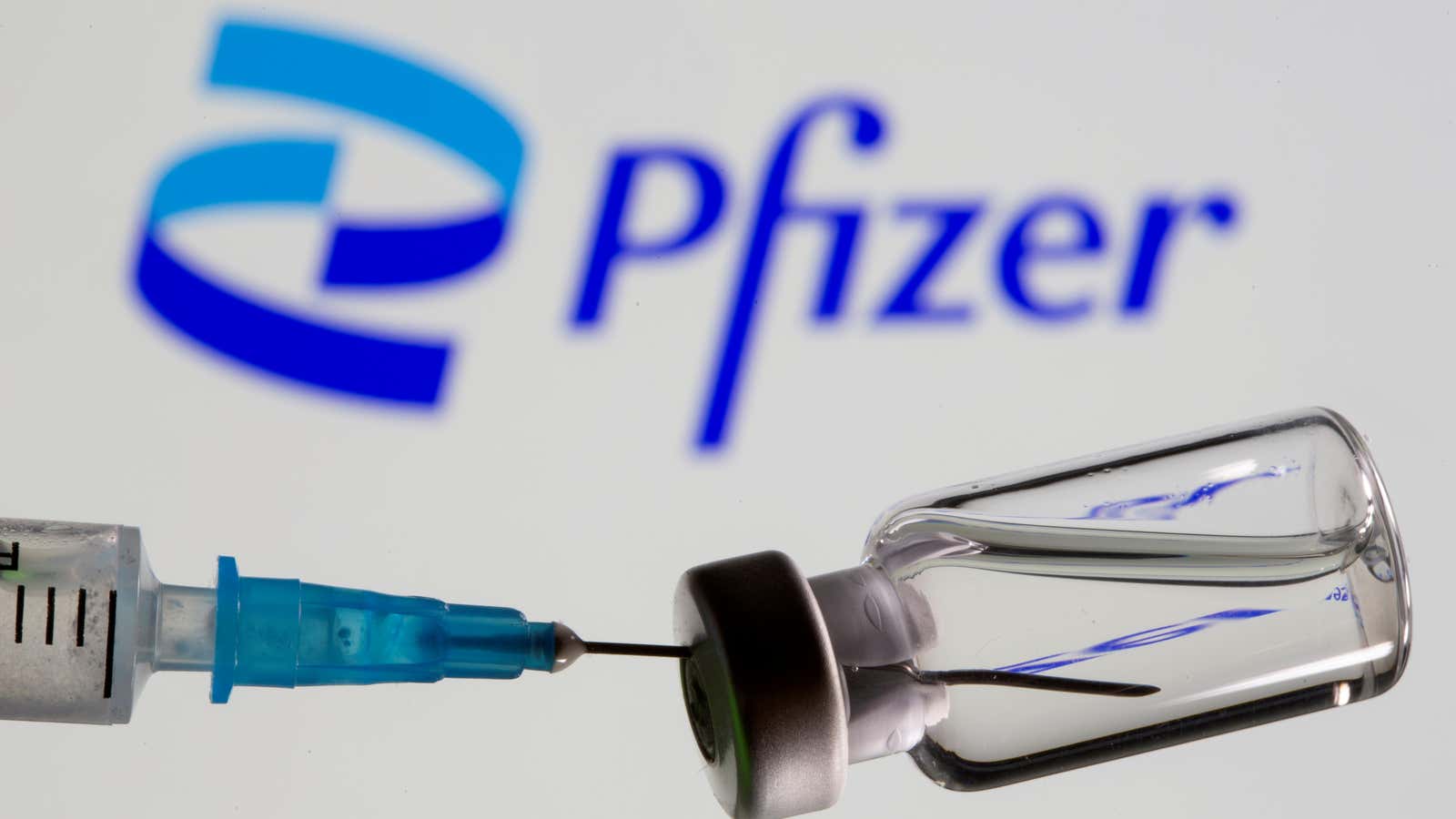Pfizer, one of the world’s leading pharmaceutical companies, has announced that it will be providing nearly two dozen of its patented products at not-for-profit prices to 45 lower-income countries, home to 1.2 billion people.
Ghana, Malawi, Rwanda, Senegal, and Uganda are the first five countries to commit to the ‘accord for a healthier world’ initiative, announced at the annual World Economic Forum in Davos. These countries will be the first to receive the drugs at a lower cost, and health officials from the countries will provide early insights to ensure ‘all medicines and vaccines can reach those in need’.
Lessons learned from these five countries will then be applied to the rollout to the other countries. The program will be available to 45 countries in total—27 of which are low-income countries, and 18 lower-middle-income countries. 29 of these countries are in Africa.
The nearly two dozen products treat infectious diseases, including covid-19, certain cancers and rare and inflammatory diseases, which are responsible for the deaths of nearly one million people each year in the selected 45 countries. The company also said it is working to develop a vaccine for the prevention of Group B Streptococcus (GBS), which is a leading cause of stillbirth and newborn mortality in low-income countries.
Africa faces a huge disease burden but difficulties in acccesing life-saving drugs
Previous studies have shown that essential medicines and vaccines typically take several years longer to reach the poorest countries.
“Rapid and affordable access to the most advanced medicines and vaccines is a cornerstone of global health equity,” said Rwanda’s president, Paul Kagame at the World Economic Forum in Davos.
“Pfizer’s commitment, under the Accord programme, sets a new standard in this regard, which we hope to see emulated by others, combined with additional investments in strengthening Africa’s public health systems and pharmaceutical regulators.”
“The great thing about this Accord is that it helps low-income countries without violating their dignity and agency as people,” said Lazarus Chakwera, president of Malawi. “For it is a true partnership that involves both Pfizer and countries like Malawi sharing the burden of costs and tasks in the production and delivery of supplies that will save millions of lives.”
Big pharma has been criticized for gate-keeping in drug manufacturing
Pfizer has faced criticism since the distribution of its mRNA covid-19 vaccine for not sharing its vaccine technology with low and middle income countries, limiting vaccine access for poorer countries. Just over 17% of the African continent has been fully vaccinated so far, compared to 66% of people in the US.
Meanwhile, research from Oxfam showed that Pfizer, BioNTech, and Moderna have been cashing in on the vaccines—making $1000 every second in 2021. Pfizer has been accused by NGOs and activists of ‘pandemic profiteering.’
While activists have said this recent initiative is a step in the right direction, it still falls far short of Pfizer sharing its technological knowhow for African countries to be able to manufacture drugs themselves.
“It’s right that some countries will not have to pay Pfizer’s rip-off prices for certain vaccines and treatments,” said Julia Kosgei, Policy advisor to the People’s Vaccine Alliance in a statement. “But Pfizer is once again gate-keeping who can and can’t manufacture and access these life saving vaccines and medicines.”
